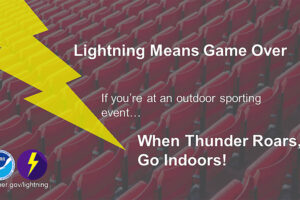Thunderstorms possible for ‘Notre Dame’ vs. Purdue; weather forecasts iffy for Saturday afternoon and early evening in Notre Dame, IN

The Fighting Irish might just have to wait a bit longer to make another attempt at their first win of the season, if the elements do not cooperate. They are set to host Purdue in The House That Rockne Built on Saturday at 3:30 p.m. ET. The actual kickoff presumably comes some minutes later, with the game likely running past
» Read more

